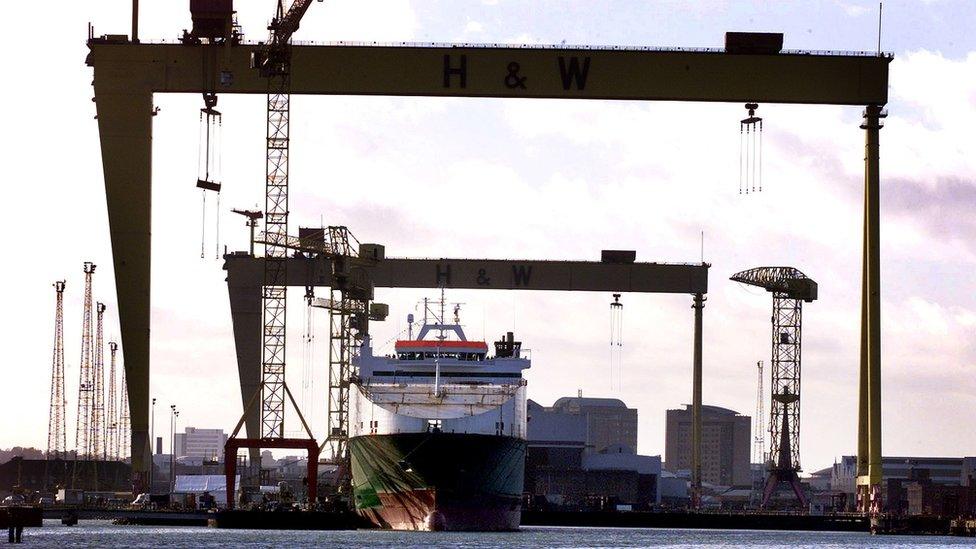Harland and Wolff: Angela Smith calls for imaginative thinking
- Published

Angela Smith was a Northern Ireland minister during Tony Blair's premiership
A former NI minister has said Secretary of State Julian Smith must "think outside the box" to try to preserve jobs at the Harland and Wolff shipyard in Belfast.
The shipyard went into administration on Monday, putting 130 jobs at risk.
Angela Smith served in Northern Ireland from 2002 to 2006.
She was responsible for classifying the shipyard's iconic cranes as "scheduled monuments", meaning they cannot be removed without government permission.
The administrators that have taken control of Harland and Wolff have agreed to give the Belfast shipyard an extra week to find a buyer.
Workers will not be paid during this time, but if a buyer is identified next week, their jobs can be retained.
Baroness Smith is now a Labour peer in the House of Lords and a member of the Labour shadow cabinet.
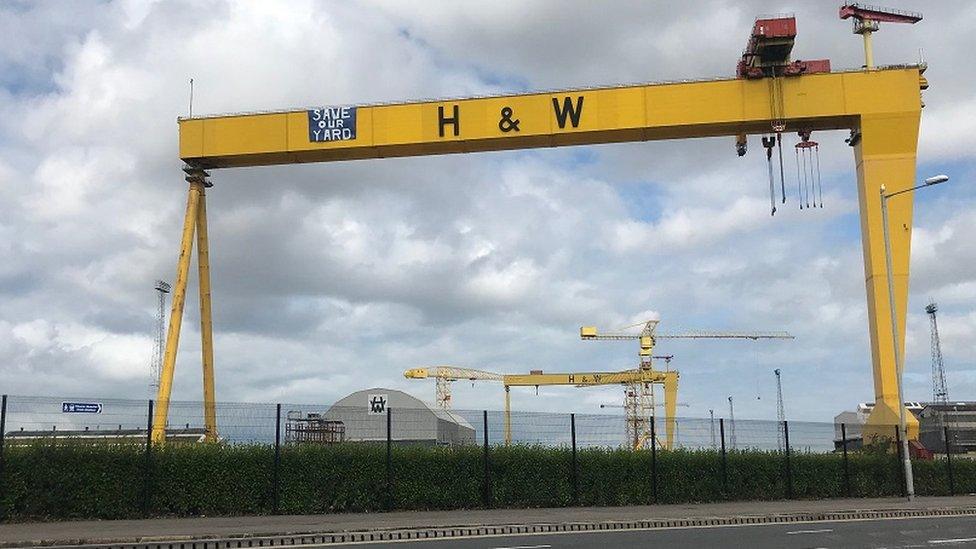
"When you are involved in politics you have to find a way, you have to think outside the box and think of things that might look impossible first of all and see if there is a way forward," she told BBC Radio Ulster's Sunday News programme.
Listen to the full interview on BBC Sounds
The Northern Ireland Office said Julian Smith "continues to do everything he can to secure the future of this historic site and ensure workers' interests are protected during this difficult time".
It added the NIO will play a full part in Belfast City Council's manufacturing forum to examine growth opportunities for the sector.
"I've seen what the secretary of state has said and we need a bit more meat on the bones, said Baroness Smith.
"All options need to be considered including whether royal naval ships, or part of them can be built there, because the cost of losing those jobs to all of Belfast is enormous."

Northern Ireland Secretary Julian Smith has said he is doing everything he can to protect workers interests
Her party colleague, Shadow Chancellor John McDonnell, visited the shipyard last week and said Labour would re-nationalise the yard.
"You have to look at every single option and if it is practical then you have to go ahead with something like that," said Baroness Smith.
"Other countries have done it, albeit temporarily, to see what can be done."
Samson and Goliath
Although the government has said the crisis is "ultimately a commercial issue", Baroness Smith said it bore a greater responsibility to try and preserve the threatened jobs.
"It isn't just a commercial decision because it has such a wide impact," she said.
"Governments have to be far more interventionist than they are used to being and see what can we do to help.

Since 2003, the cranes have been recognised as official scheduled monuments
"They should do everything possible to try and ensure a sustainable future for the yard."
The yellow cranes, known affectionately as Samson and Goliath, are significant not just because of their size - they are part of the city's psyche.
They reside in the Harland and Wolff shipyard, which in its early 20th Century heyday was the most prolific builder of ocean liners in the world.
Its most famous creation was, of course, the Titanic.
The cranes, which are more than 300 ft high, were "scheduled" by Angela Smith back in 2003 under the Historic Monuments and Archaeological Objects (Northern Ireland) Order,, external which ensures that any action to alter or change them would need consent.
At the time, she said: "These cranes are an essential part of our city, our roots and our culture."
Sixteen years later, she remains confident her decision to protect the cranes was the right one that could give the shipyard a chance.
"These are iconic landmarks about the history of Belfast and as such we felt that they shouldn't be able to be removed or altered in anyway until the decision was properly looked at and examined," she said.
"But it was also a pragmatic decision because what everyone wants to see is that type of industry coming back to Belfast, and once they were gone they were gone."
Baroness Smith has said she would like to see the cranes kept in industrial use and said she would be very sorry to see them go.
- Published8 August 2019
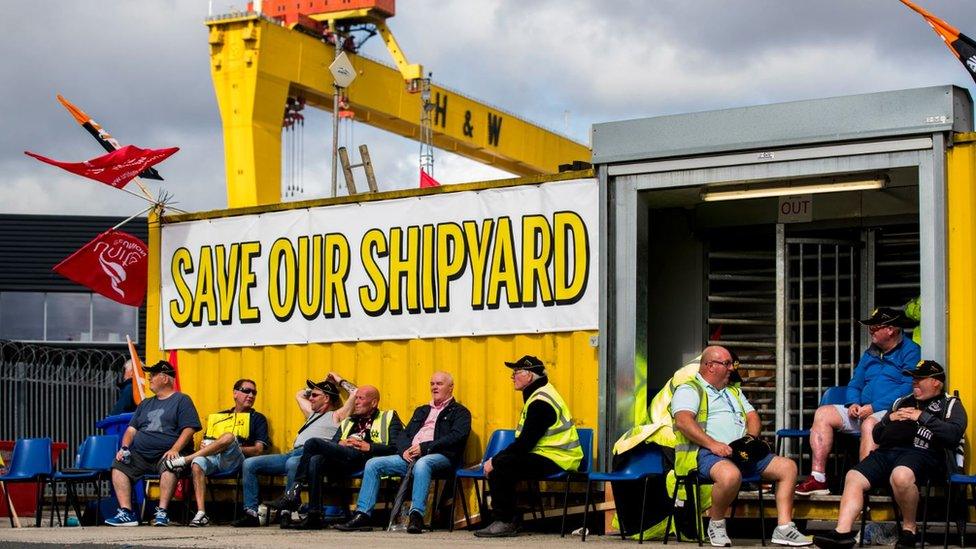
- Published28 September 2024
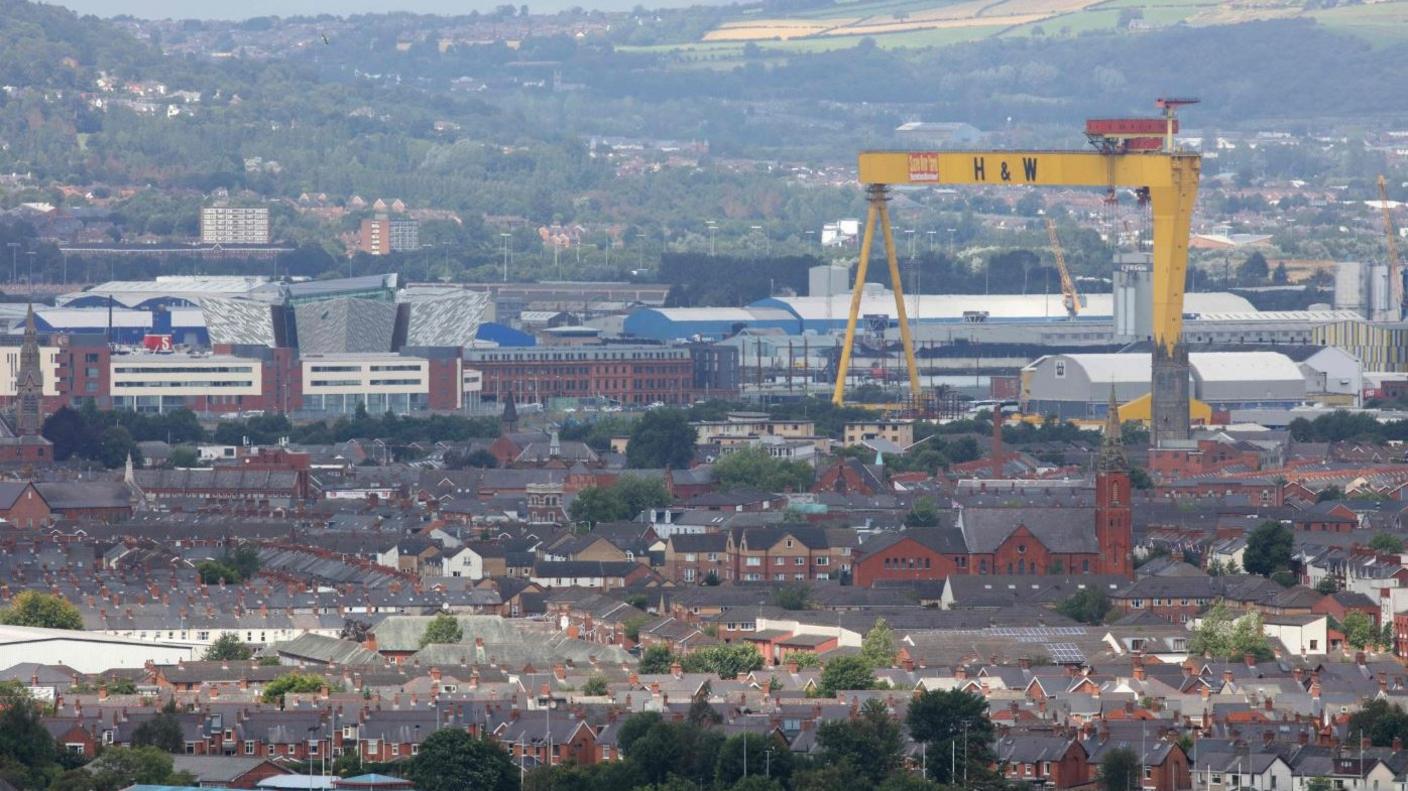
- Published9 August 2019
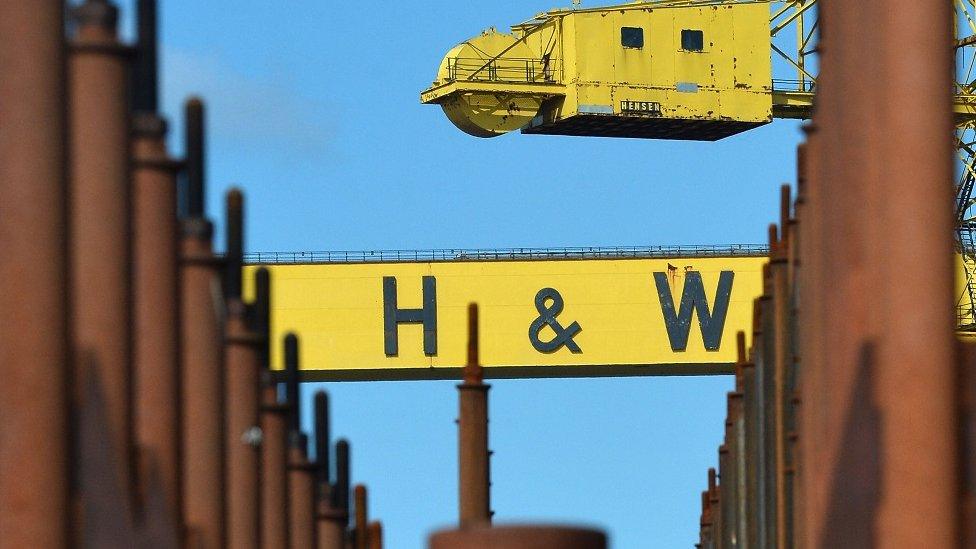
- Published5 August 2019
